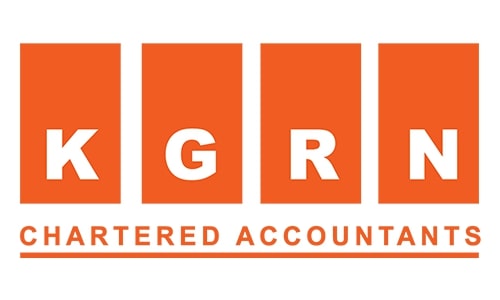The introduction of Value Added Tax (VAT) in the United Arab Emirates (UAE) in 2018 has significantly impacted businesses operating in the region. While VAT offers several benefits for the economy, ensuring proper compliance can present challenges for companies. Mastering VAT submission is crucial for avoiding penalties, maintaining healthy cash flow, and demonstrating responsible business practices.
The first step to VAT compliance is VAT registration. VAT services in UAE, the Federal Tax Administration (FTA) requires entities (natural persons) and businesses (legal persons) doing business in the US to charge vat if their total taxable supplies and goods and services imports exceed AED 375,000 over the past 12 months and the above turnover in the next 30 days.
Who needs to register for VAT?
Businesses with annual taxable supplies exceeding AED 375,000 are mandatory to register for VAT. However, voluntary registration can be beneficial for certain businesses, even if they fall below the threshold.
Understanding the Fundamentals of VAT in the UAE:
- VAT Rates and Exemptions: The standard VAT rate in the UAE is 5%. This applies to most goods and services. However, specific categories like basic necessities, educational services, and certain healthcare services are zero-rated and not subject to VAT. Additionally, some supplies are exempt from VAT, such as exports and financial services.
- Taxable Supplies and Reverse Charge Mechanism: It’s crucial to understand the concept of taxable supplies, which are goods or services subject to VAT. The reverse charge mechanism applies in specific situations, where the recipient of a supply becomes responsible for accounting for VAT instead of the supplier. Understanding these concepts is essential for accurately calculating VAT liability.
VAT Return filing in UAE
The VAT e-filing will be available in full online for filing VAT return in Dubai on the site of the federal taxation authority www.tax.gov.ae. Also, VAT consultancy services in Dubai help with filing the returns. There is no recognition of manual returns. Companies must follow the online protocol in order to file the return. The VAT return filing option is offered by the e-services portion. The returns should be submitted each quarter or weekly. The tax authorities may levy fines for the delay in filing returns. VAT consultants in Dubai will help in filing the returns.
In general, the return filing is online in countries where VAT is already operating and VAT consultants in UAE will assist in filing.
How relevant is VAT returns?
The VAT return is just a structured way to record the VAT charged for a given amount of time. The papers, register, and financial statements shall be submitted as per the records. The primary goal of filing a return is to provide the authority with an analysis of the value-added tax. Returns are relevant for the audit and compliance of VAT. It indicates that VAT obligations have been fulfilled. Each person and business registered with VAT must file returns within the 3 months stated.
In compliance with the VAT laws, the role of the accountancy or tax consultancy is very critical. If it is VAT, VAT, or payment registration, a VAT accounting in Dubai may contribute to smooth VAT procedures.
Steps to Mastering VAT Submission:
- Maintaining Accurate Accounting Records: Keeping meticulous records is the foundation of accurate VAT submission. This includes separate records for sales and purchase invoices, receipts, and payment records. Utilizing accounting software can significantly streamline record management and minimize errors.
- Calculating VAT Accurately: Mastering VAT calculations involves understanding the difference between input VAT (VAT incurred on purchases) and output VAT (VAT charged on sales). You can calculate net VAT payable by subtracting input VAT from output VAT. Utilizing formulas or readily available online resources can simplify calculations.
- Filing VAT Returns on Time: Timely filing of VAT returns is essential for avoiding penalties. Filing frequency depends on your business turnover. Businesses with taxable supplies exceeding AED 150 million annually must file monthly returns, while others can file quarterly. The Federal Tax Authority (FTA) portal offers a user-friendly platform for electronic submission.
Calculation rule for VAT in UAE
In order to measure VAT, INPUT TAX is subtracted from the VAT-equivalent OUTPUT TAX, which is the simple law that you can obey. You can learn it by yourself or also VAT service in Dubai makes the process smooth.
1. Calculate the total output VAT: Sum the output VAT from all your sales during the relevant period (e.g., month, quarter).
2. Calculate the total input VAT: Sum the input VAT from all your eligible purchases during the same period.
3. Subtract the total input VAT from the total output VAT: This will give you the net VAT payable to the government.
Formula: Net VAT Payable = Total Output VAT – Total Input VAT
By understanding these basic principles and consulting relevant our resources, you can effectively calculate VAT for your business in the UAE. It’s always recommended to seek professional advice from our tax advisor for complex situations or specific industry regulations.
VAT Calculation and VAT Accounting Requirements
Check that the bill must be implemented for buying merchandise. In comparison, confirmation of taxable goods means the production tax that the vendor can pay and the information shown in the invoices either tax was paid accordingly.
- Assign the market value price at the time of sale or account provision along with the decrease in the rate of the input tax so as to be able to meet the amount to be paid.
- In the due date, the government determines the payment of the tax and the deposit.
- Financial Experience Research
- You must preserve in counts, financial statements, VAT returns, correct inventory, paying for VAT and other important proceedings at the time of purchase to legitimise the paid tax.
- Provide the government, within a specific deadline, with the significant details required when filing the VAT return in the UAE.
- Calculation of VAT
- VAT file
- Transmit VAT Filing and Procedure Records
What companies are subject to VAT?
Tax licensed companies managed in the mainland of the UAE and the free zones shall similarly be subject to VAT. If the UAE Cabinet describes a certain area as a “designated area,” however, it must be dealt with for tax purposes as being outside the UAE. Goods are moved between designated areas without penalty.
VAT implications
Impact of VAT on individuals -
For the bulk of goods and services transactions, VAT, as a general price fee, applies. There may be a small number of exemptions.
- As a result, living costs would potentially marginally rise, though depending on the person’s lifestyle and expenditures. If a person spends more on those items relieved of VAT, there is little hope of a meaningful rise.
- The government would have regulations ensuring that corporations consider the amount of VAT each transaction requires of a citizen. Based on this data, people will opt to purchase things.
VAT impact on corporations
- Companies shall properly register their company profits, expenses and VAT charges associated with them.
- Licensed firms and traders owe VAT at the current rate on all their customers and incur VAT on goods/services they procure from their suppliers. The disparity is reimbursed or billed to the government.
When would firms have to file a return on VAT?
Taxable corporations are required, as specified in the ‘tax period’ for each form of company, to periodically file VAT returns with FTA within 28 days. A “tax period,” a period during which the tax is assessed and collected is a given period of time. The regular cycle of taxation is:
- for firms below AED150 million in annual turnover
- AED 150 million or more monthly for firms with an annual turnover.
Last Commercial Business Law No.2 of 2015 restricts:
- Article. 26: Each corporation or entity, as a distinction from closing the financial year, shall retain accounting records for a term of 5 years in compliance with Article 26 of the Legislation. Article 26.
- Article 348: The fine of AED 50,000 – AED 500,000 shall be levied under this Article on holding an accounting record for collapse.
- Article 349: AED 20,000 fines – AED 200,000 is required if an organization or corporation fails to hold records for the defined time period (i.e. five years) in respect of the VAT accounting.
The notion of VAT in one go is never an easy mission. This is why VAT consultancy UAE has VAT experts that provide vat consulting services in Dubai, VAT accounting in Dubai. Also, VAT consultancy Dubai extends their hands to assist you with any VAT problems you can face.
Conclusions
Mastering VAT submission in the UAE empowers businesses to operate compliantly, optimize cash flow, and avoid costly penalties. By following the steps outlined in this guide, utilizing available resources, and seeking professional support when necessary, businesses can navigate the VAT landscape with confidence and achieve long-term success.
Discover the seamless VAT services provided by KGRN for individuals and businesses in the UAE. Contact us now to ensure compliance and optimize your tax strategy!







